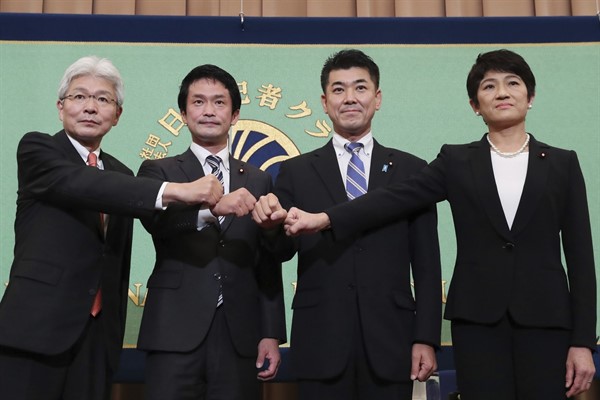On Nov. 30, the center-left Constitutional Democratic Party, or CDP, Japan’s leading opposition party, elected 47-year-old Kenta Izumi to succeed CDP founder Yukio Edano as party leader.
Izumi inherits a party reeling from an unexpectedly large defeat in Japan’s Oct. 31 general election, in which the CDP won fewer than 100 of the lower house’s 465 seats. Right up until the final days of the campaign, polls suggested that a united opposition bloc led by the CDP could flip dozens of seats held by the ruling Liberal Democratic Party-Komeito coalition. But the coalition limited its losses to only a dozen seats, while still comfortably maintaining its parliamentary majority with 293 combined seats. As newly elected Prime Minister Fumio Kishida celebrated his victory, Edano resigned as leader of the party he founded in 2017.
While Edano’s resignation was perhaps unavoidable given the CDP’s disappointing performance, there is little reason to think that a leadership change will fix what ails the party. In fact, the prospects for another change of government are as low as at any point since the Democratic Party of Japan—the CDP’s predecessor as the country’s most prominent opposition party—briefly held power from 2009-2012, before losing it to a resurgent Liberal Democratic Party, or LDP. More than a crisis in leadership, Japan’s opposition faces structural constraints that make it unlikely to supplant the ruling coalition for the foreseeable future.

